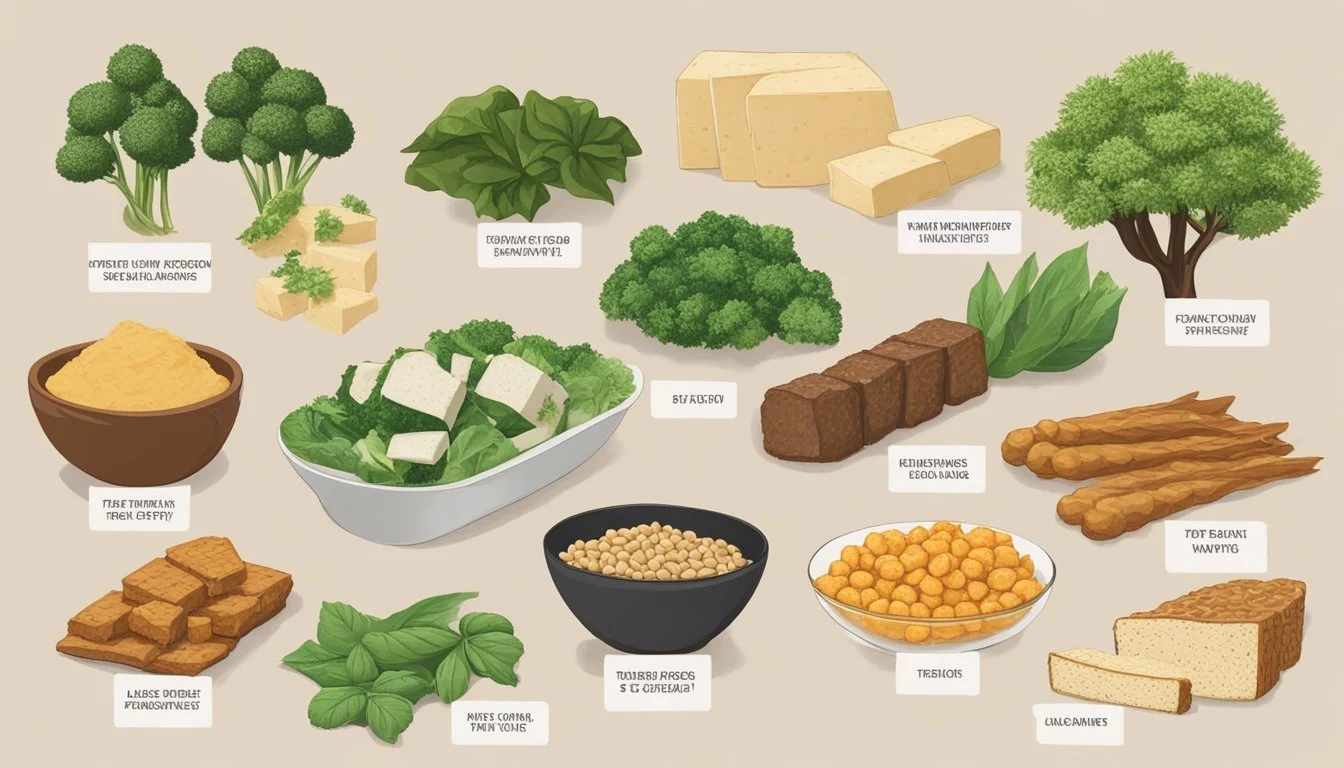Elk Meat Substitutes
Best Alternatives for Gamey Dishes
Elk meat has gained popularity as a nutritionally rich and flavorful protein source, but it isn't always easy to find or may not fit everyone's diet. For those looking to diversify their meals or find accessible alternatives, there are various substitutes available that offer similar texture, taste, and nutritional benefits. Meat substitutes like seitan, made from vital wheat gluten, and lentils provide great options for those who seek to replicate the richness and health benefits of elk meat.
Seitan, with its chicken-like texture, can be seasoned to mimic the savory flavor of elk meat, making it an excellent substitute. Incorporating soy sauce, spices, and nutritional yeast enhances its taste, allowing it to be used in dishes ranging from stews to tacos. Pairing these substitutes with vibrant sauces like tomatillo avocado can elevate the meal, ensuring that the nuance of elk meat is not missed.
For those who prefer plant-based alternatives, lentils are a versatile and protein-rich option. They can be used in place of ground elk in recipes such as chilis or Bolognese. Uncooked dried lentils or cooked canned lentils can easily absorb flavors and spices, making them an adaptable choice for various culinary creations. These substitutes ensure that anyone can enjoy meals reminiscent of elk meat, without sacrificing nutrition or taste.
Understanding Elk Meat
Elk meat stands out due to its rich nutritional profile and several health benefits. It is a lean and flavorful game meat with essential vitamins and minerals.
Nutritional Profile of Elk Meat
Elk meat is a nutrient-dense food. It is particularly high in protein, offering approximately 23 grams per 3-ounce serving. The meat is low in fat, usually containing around 2 grams of fat per serving, making it a lean meat option. It also tends to be lower in calories, with about 120 calories per serving.
In terms of essential nutrients, elk meat contains notable levels of zinc and vitamin B12. Zinc is crucial for immune function, while vitamin B12 plays a vital role in energy production and nervous system health. Additionally, elk meat is rich in iron and phosphorus, both of which are important for maintaining healthy bones and cells.
Health Benefits Associated with Elk Meat
Consuming elk meat provides several health benefits. Its high protein content supports muscle growth and repair. Due to its low saturated fat content, elk meat is heart-friendly, helping to maintain healthy cholesterol levels.
Moreover, the meat’s rich vitamin and mineral profile supports general well-being. The zinc content strengthens the immune system, while vitamin B12 contributes to red blood cell formation and neurological function. The iron in elk meat helps prevent anemia by ensuring adequate oxygen transportation in the body.
Elk meat’s profile as a game meat makes it a popular choice for those seeking a meat option that is free from added hormones and antibiotics, often associated with farmed meats.
By incorporating elk meat into their diets, individuals can enjoy a flavorful and healthful protein source.
Elk Meat in Culinary Practices
Elk meat is highly versatile in culinary applications, offering numerous ways to prepare and enjoy this nutrient-rich protein. From traditional dishes to various cooking methods, elk meat provides many opportunities to delight the palate.
Traditional Elk Meat Dishes
Elk meat has long been incorporated into traditional dishes such as stews, sausages, and burgers. One popular dish is Elk Venison Burgundy, featuring cubed meat slow-cooked with bacon, red wine, and seasonings. Another is Elk Steak Au Poivre, which pairs the robust flavor of elk with a peppercorn crust.
Elk burgers are also a favorite, often prepared with added fat due to the leanness of elk. These burgers mirror the taste of grass-fed beef but with a distinct gamey flavor. Elk sausages provide a flavorful alternative to pork, often seasoned with herbs and spices.
Cooking Methods for Elk Meat
Cooking methods vary widely and can include baking, frying, and skillet cooking. Elk steaks are best cooked to medium-rare to maintain tenderness, with an internal temperature of around 130-140 degrees Fahrenheit. Marinating is recommended to enhance flavor and tenderness.
Ground elk meat is perfect for making burgers and meatballs, often mixed with additional fat to prevent dryness. For roasts and steaks, brushing the meat with oil can help compensate for the low fat content. Baking and slow-cooking are ideal for stews, allowing the meat to become tender and absorb rich flavors.
Substitutes for Elk Meat
When searching for substitutes for elk meat, several options stand out. These include plant-based alternatives, other game meats, and more common livestock meats. Below, we explore each category to provide suitable replacements for elk meat's flavor and nutritional profile.
Plant-Based Alternatives
Tofu is an excellent plant-based alternative. Made from soybeans, it can absorb flavors well. Its texture is firm, which makes it suitable for grilling or stir-frying, similar to elk.
Tempeh also originates from soybeans but is fermented, creating a firmer texture and a slightly nutty flavor. It is packed with protein and can be used in a variety of dishes, mimicking the texture of ground elk meat.
Seitan, made from wheat gluten, offers a chewy texture and high protein content. Its ability to take on various seasonings makes it versatile for dishes like stews or sandwiches.
Other Game Meat Substitutes
Venison (deer meat) is a prime substitute. It has a similar leanness and slightly gamey flavor. Venison steaks, roasts, and ground meat can directly replace elk in most recipes.
Bison is another excellent option. While slightly milder than elk, it matches the leanness and robust flavor. Bison can be used in recipes such as burgers, stews, and steaks.
Wild Boar offers a distinctive taste with a hint of sweetness. Though not identical to elk, its rich flavor complements recipes where a strong, gamey taste is desired. It is well-suited for sausages and barbecued dishes.
Common Livestock Meat Substitutes
Beef is the most accessible substitute for elk meat. While generally fattier, selecting cuts such as sirloin or tenderloin can provide a closer match in terms of texture and cooking methods. Ground beef works well in recipes like chili or meatballs.
Lamb has a distinct, rich flavor profile that can serve as a substitute. Though more flavorful than elk, lamb can be used in roasted or braised dishes where a robust taste is appreciated.
Pork provides a versatile option. Lean cuts like tenderloin or loin chops can replace elk in various dishes while offering a mildly sweet flavor. Ground pork can also be a suitable alternative for recipes requiring minced elk meat.




